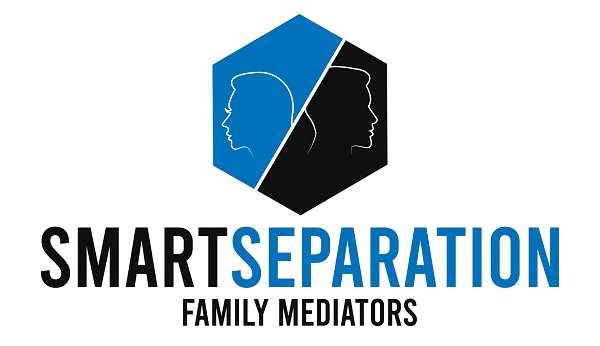Organize Your Financial Information
Financial disclosure is a critical part of the divorce mediation process in Ontario. Both parties are required to provide full, honest, and accurate financial information to ensure fair and informed negotiations.
- Income Statements, Pay Stubs, and Tax Returns:
Gather recent pay stubs, Notices of Assessment from the Canada Revenue Agency (CRA), and income tax returns from the past three years. If you’re self-employed, include business financial statements as well. - Debts and Liabilities:
List all outstanding debts, including credit card balances, lines of credit, personal loans, car loans, and mortgages. Be prepared to provide supporting documents such as account statements or loan agreements. - Assets: Bank Accounts, Pensions, RRSPs, and Property Valuations:
Compile a complete list of your assets, including joint and individual bank accounts, investment portfolios, RRSPs, TFSAs, and pensions. If you own property, provide recent appraisals or municipal tax assessments.
Prepare Parenting-Related Documents (If Applicable)
For Ontario spouses with children, divorce mediation often includes discussions about parenting arrangements. Being well-prepared with relevant documentation helps ensure that decisions are made in the best interests of the children.
- Children’s Schedules, School Information, and Medical Needs:
Bring information about your children’s daily routines, school calendars, report cards, and any special education needs. Include medical records, details about allergies, medications, and the names of healthcare providers. - Proposed Parenting Time or Custody Preferences:
Consider your ideal parenting schedule and be ready to discuss alternatives. Think about holidays, weekends, summer vacations, and how exchanges will work. Flexibility is important, but it helps to come in with a basic plan. - Childcare Expenses and Extracurricular Activities:
Prepare a breakdown of all child-related expenses, including daycare fees, sports, music lessons, tutoring, and summer camps. These figures are essential for negotiating child support and cost-sharing arrangements during mediation.
Clarify Your Goals and Priorities
Entering divorce mediation with a clear understanding of your personal goals can make the process more productive and reduce emotional conflict. Knowing what truly matters to you—and where you’re open to compromise—helps you focus on long-term solutions rather than short-term wins.
- What Outcomes Are Most Important to You:
Identify your top priorities, such as staying in the matrimonial home, maintaining a strong co-parenting relationship, or securing a fair financial settlement. Having a clear vision of what you want helps you advocate effectively during mediation. - Issues You Are Willing to Negotiate On vs. Non-Negotiables:
Separate your “must-haves” from your “nice-to-haves.” Be honest with yourself about which issues are negotiable and which are not. This mental clarity will help prevent unnecessary conflict and speed up resolution. - Emotional Preparation for Compromise and Collaboration:
Divorce mediation requires patience, openness, and a willingness to hear the other person’s perspective. It’s helpful to practise self-regulation techniques, such as deep breathing or taking breaks, to manage emotional triggers and stay solution-focused.
Plan to Consult with a Family Lawyer
While divorce mediation in Ontario focuses on open dialogue and mutual agreement, consulting with a family lawyer remains an essential step to ensure your legal rights are protected. Legal advice does not undermine mediation—it strengthens it.
- Role of Independent Legal Advice Before or After Mediation:
Even though mediators remain neutral, a lawyer is your personal advocate. Independent legal advice (ILA) helps you understand your legal entitlements and the implications of any proposed settlement. You can seek this advice before, during, or after mediation sessions. - Reviewing the Memorandum of Understanding (MOU) Before Finalizing:
At the end of successful mediation, the mediator typically prepares an MOU outlining the agreed terms. This is not legally binding until both parties have it reviewed and converted into a formal separation agreement with the help of lawyers. A lawyer will ensure the language is enforceable and that your interests are protected. - How Lawyers Can Complement—Not Replace—the Mediation Process:
Lawyers and mediators serve different but compatible roles. Mediation fosters agreement; legal advice ensures fairness. Many Ontario couples find success by combining both—resolving matters cooperatively while still making informed legal decisions.
Know What to Bring to Your First Session
Proper preparation can make your first divorce mediation session in Ontario smoother and more effective. Arriving organized not only saves time but also shows your willingness to engage constructively.
- Personal ID and Contact Information:
Bring government-issued identification (e.g., driver’s licence or passport) and up-to-date contact information. This is often required during intake or when preparing documents. - All Relevant Documentation (As Gathered Above):
Bring the financial, parenting, and property-related documents you’ve prepared—including pay stubs, tax returns, debt lists, account balances, and children’s schedules. Organize them neatly in folders or digital files for easy access. - A Written List of Concerns and Discussion Points:
Write down the issues you want to address during mediation, such as spousal support, parenting time, or property division.
Tips for a Productive Mediation Experience
Your mindset and conduct during divorce mediation can significantly influence the outcome. In Ontario, where mediation is designed to foster cooperation, the right approach can lead to a smoother process and better long-term results.
- Arrive with an Open Mind and a Focus on Resolution:
Mediation is about finding common ground—not “winning.” Stay open to creative solutions and try to understand the other person’s perspective. Flexibility often leads to better agreements. - Stay Calm and Respectful, Even During Disagreement:
Emotions can run high, but respectful communication is key. Avoid blaming language, interruptions, or personal attacks. If needed, ask for a short break to regroup. - Be Prepared for Multiple Sessions and Follow-Ups:
Not everything gets resolved in one meeting. Depending on the complexity of your situation, you may need several sessions. Stay committed to the process, knowing that each step brings you closer to resolution.
As an experienced family and divorce mediator in Toronto, I often write blogs to provide insights, tips, and resources on family mediation and divorce in Ontario. Follow my blog to stay informed and empowered during challenging times.



